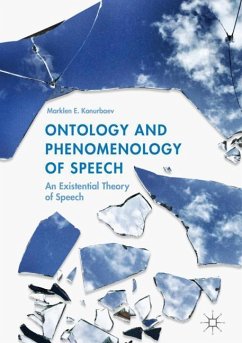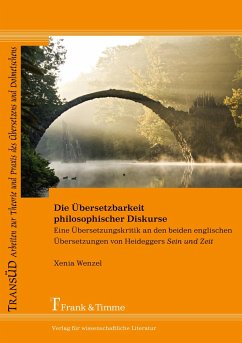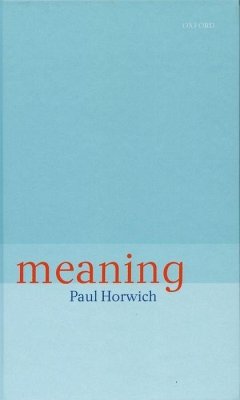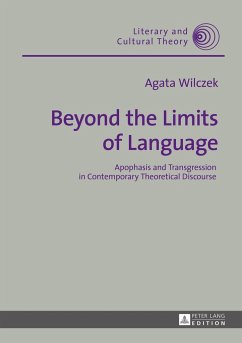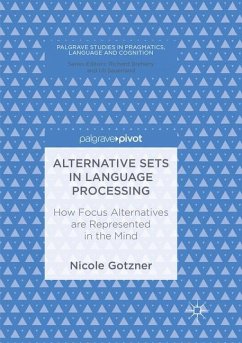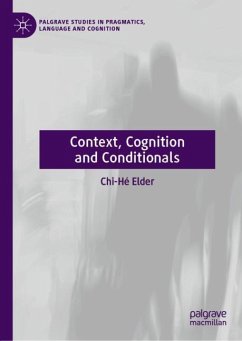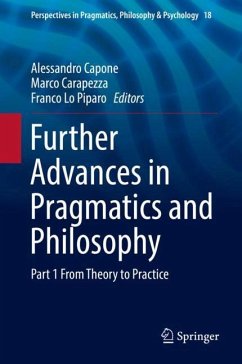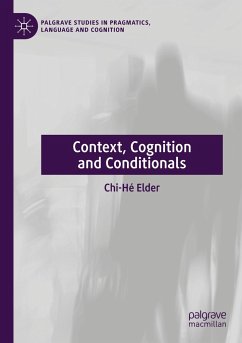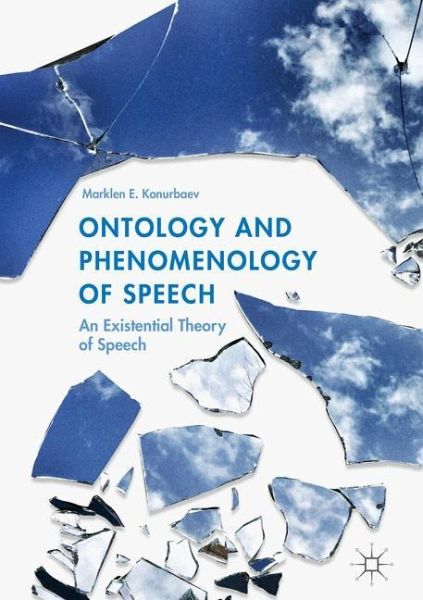
Ontology and Phenomenology of Speech
An Existential Theory of Speech
Versandkostenfrei!
Versandfertig in 6-10 Tagen
68,99 €
inkl. MwSt.
Weitere Ausgaben:

PAYBACK Punkte
34 °P sammeln!
This book applies phenomenological methodology to examine the transformations of messages as they pass from the mind to the linear world of human speech, and then back again. Rapid development of linguistic science in the second half of the 20th century, and cognitive science in the beginning of the 21st century has brought us through various stages of natural human language analysis and comprehension - from deep structures, transformational grammar and behaviorism to cognitive linguistics, theory of encapsulation, and mentalism. Thus, drawing upon new developments in cognitive science, philos...
This book applies phenomenological methodology to examine the transformations of messages as they pass from the mind to the linear world of human speech, and then back again. Rapid development of linguistic science in the second half of the 20th century, and cognitive science in the beginning of the 21st century has brought us through various stages of natural human language analysis and comprehension - from deep structures, transformational grammar and behaviorism to cognitive linguistics, theory of encapsulation, and mentalism. Thus, drawing upon new developments in cognitive science, philosophy and hermeneutics, the author reveals how to obtain the real vision of life lurking behind the spoken word.
Applying methodology introduced by Edmund Husserl and developed by Martin Heidegger, the author examines how we can see the 'living' and dynamic essence of speech hidden in the world of linear linguistic strings and casual utterances. This uniquely researched work will be a valuable resource for students and scholars of cognitive stylistics, pragmatics and the psychology of language.
Applying methodology introduced by Edmund Husserl and developed by Martin Heidegger, the author examines how we can see the 'living' and dynamic essence of speech hidden in the world of linear linguistic strings and casual utterances. This uniquely researched work will be a valuable resource for students and scholars of cognitive stylistics, pragmatics and the psychology of language.





